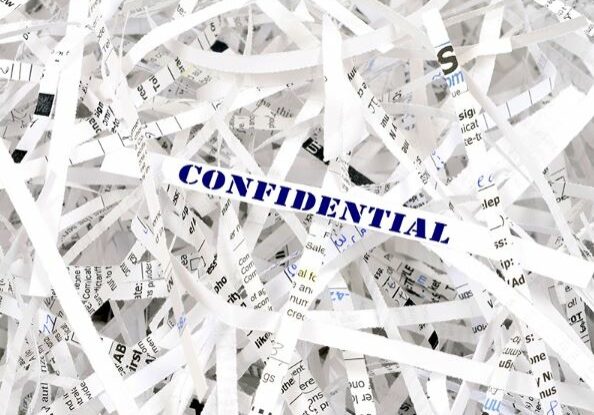
Feb 1, 2019
Save It or Shred It?
Have you ever wondered how long you need to keep all those bank statements, tax returns, paycheck stubs, etc? Does your filing cabinet runneth over?? Here are some guidelines for what to save and for how long.
Quick Facts
A routine plan for reviewing and keeping track of important documents and records can save you time searching for items when you need them.
Create the following lists to be kept with your estate planning documents and /or given to your executor, healthcare and financial powers of attorney. Make sure they know where to find the documents if you do not give them copies.
- A list of logins and passwords for all online accounts especially if they pertain to any of the items listed above.
- A list of professionals you work with: CPA, attorney, financial planner (consider putting their business cards with the list).
It is important to store important documents, information and records in a safe place. Following are a few options:
- A fire-proof, water-proof, burglar-proof home safe or lock box.
- If you have a scanner or can obtain records online and save as a PDF, you can electronically store documents and records. Make sure they are legible and readable. If you do that, be sure to back up your hard drive frequently in case of computer malfunction or crash.
- If you have set up a login and password to Wealth Director, our information center and portal for client convenience, you can securely store documents in the “Vault”.
For statements with banks and brokerage firms, many will have statements available online for a period of 1+ years. Check with your bank, credit union or brokerage firm on how long they have statements available online.
Keep for 1–3 Months
- Utility bills
- Sales receipts for minor purchases
- ATM and bank deposit slips
Keep for 1 Year
- Checkbook ledgers
- Cancelled checks
- Paycheck stubs until you get your W-2
- Monthly mortgage statements
- Bank Statements
- Expired insurance records
Keep for 7 Years
- Bank statements if needed to verify information on your tax return
- Annual tax returns
- W-2, 1099 forms and tax return supporting documentation
- Receipts on purchases used for tax purposes
- Disability records
- Unemployment income stubs
- Medical bills/claims if needed verify information on your tax return
- Year-end statements for after-tax investments if needed to verify information on your tax return
Keep Indefinitely Or Until No Longer Applicable
- Deeds, mortgages and bills of sale
- Legal documents (birth certificates, marriage license, divorce papers, passports)
- Home improvement documentation and receipts
- Receipts for major purchases—for warranty and insurance purposes
- Trade confirmations for assets held in after-tax accounts (individual, joint, trust, etc.) until the asset is 100% sold. They are needed for cost basis verification.
- Wills & letters of last instruction
- Medical directives and living wills
- Power of attorney (financial and healthcare)
- Trust
- Burial information
- List of locations of important documents, contact information, usernames and passwords, and professional advisors (CPA, attorney, financial advisor)
- Personal property inventory (description, serial numbers, price paid, date purchased, estimated current value)
- Medical and burial instructions
- Beneficiary directions
- Real estate certificates
- Automobile titles until sold
- Physical stock certificates or bonds
- Current insurance policies (Life and Long-term Care)
- Medical records (immunization, medical history & information, organ donor card)
- Education records (diplomas, professional certificates & licenses, transcripts)
- Pension plan records
- Retirement plan records
- Veterans benefits and service records
If you would like assistance or have any questions, do not hesitate to call us.
